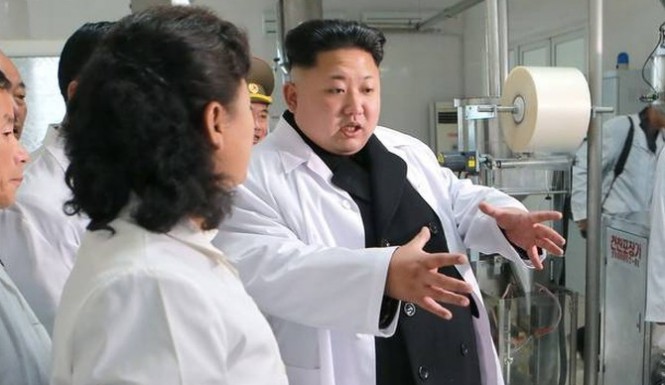The leaders of Russia and China have agreed they will not accept North Korea’s nuclear and missile strategy, but they reaffirmed their opposition to a possible deployment of an advanced U.S. missile defence system in South Korea.
The joint statement was issued on Monday after Russian President Vladimir Putin held a summit with Chinese President Xi Jinxing in Beijing.
On Saturday, North Korea claimed it successfully test-launched an intermediate-range ballistic missile.
Separately, a North Korean nuclear envoy who visited Beijing said Pyongyang would not return to the negotiating table on the country’s nuclear weapons programme.
In the joint statement, Putin and Xi said they agreed that the long-stalled six-party talks were the best way to achieve the denuclearisation of the Korean Peninsula.
“Both sides remain committed to achieving the goal of the denuclearisation of the Korean Peninsula and not accepting North Korea’s nuclear and missile strategy,’’ the Chinese-language statement said.
Putin and Xi also agreed that they would fully implement UN sanctions against North Korea’s nuclear and missile programmes.
However, both sides “strongly oppose” the possible deployment of a Terminal High Altitude Area Defense (THAAD) battery to South Korea.
It said that South Korea and the U.S. started formal talks on deploying a THAAD battery to South Korea to better defend Seoul from Pyongyang’s growing threats.
For South Korea, the decision to adopt the U.S. missile system was based on its national security interests to enhance its defence posture against North Korea’s advances in nuclear and missile programmes.
Russia and China have long voiced opposition to the deployment of a THAAD battery to South Korea, claiming that the U.S. missile shield may undermine the strategic balance in the region.
South Korea and the U.S. have dismissed the concerns, saying the THAAD system is defensive in nature and would only target North Korea.

